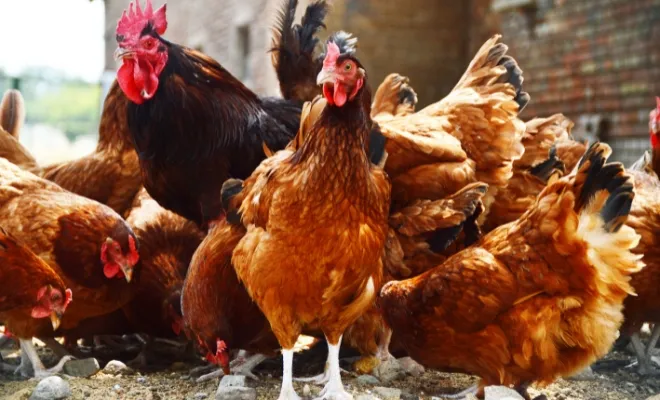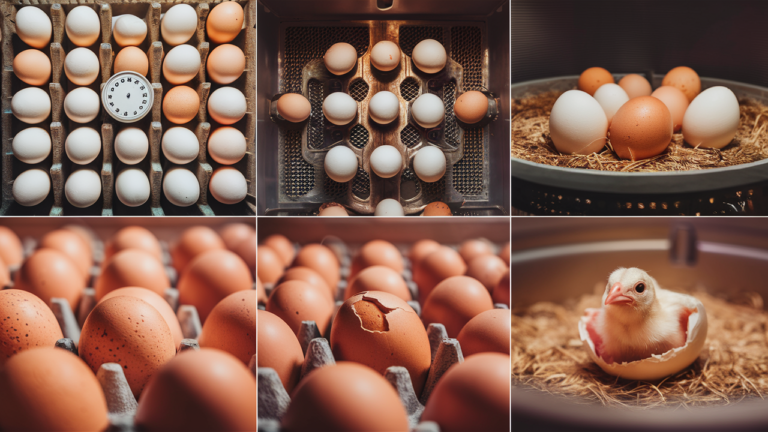18 Actionable Guides to Start Making Money with Quail (Today!)

Raising quail can be a lucrative business opportunity for those willing to invest time and effort. With their low maintenance requirements, fast breeding cycle, and high demand for their meat and eggs, quail farming offers a promising venture.
But how to make money raising quail? Choose the right quail breed and set up a safe coop. Equip your farm with necessary supplies, understand their diet, and maintain hygiene. Learn efficient egg collection and meat processing. Maximize profitability through strategic marketing. Follow regulations and stay informed about common challenges for a successful quail farming business.
Dollars in mind from quail business? Lemme guide you to raise quails to earn money!
Table of Contents
How To Make Money Raising Quail? 18 Guides!

Success in quail farming requires patience, diligence, and a willingness to learn and adapt. So, are you ready to raise quails for your purpose? Lemme share the guide on the road to a successful quail business!
1. Choosing the Right Quail Breed
Selecting the perfect quail breed is like laying the foundation for your quail farming venture. Are you aiming for abundant egg production, succulent meat, or a combination of both?
If so, Jumbo Coturnix quails are renowned for their meaty goodness, while Tuxedo quails are prolific egg layers. Do research to find the breed that aligns perfectly with your goals and resources.
2. Setting up the Quail Coop
Your quails’ home should be a sanctuary, providing safety, comfort, and ample space for them to thrive. Think of a well-ventilated coop as their haven, equipped with nesting boxes, perches, and the necessary amenities for their well-being.
Climate considerations are crucial too. Also, insulation and heating or cooling systems are necessary depending on your location.
3. Essential Equipment and Supplies
Before you bring your first quails home, ensure you have all the essential tools and supplies.
From feeders and waterers to brooding equipment (if hatching chicks) and cleaning tools, you must have these things. Having everything in place streamlines your operations and ensures your quails are well taken care of from the start.
4. Quail Feed Requirements
Nutrition is the cornerstone of healthy quails and high-quality egg and meat production. Invest in premium quail feed with the ideal protein content (around 24%) and a balanced calcium-to-phosphorus ratio.
Supplement their diet with fresh greens and veggies to boost their health and productivity.
5. Providing Water and Hygiene
Clean, fresh water is a non-negotiable for quails.
Invest in a reliable watering system to ensure they have constant access to hydration. Regularly clean and disinfect water containers to prevent disease outbreaks. Maintain impeccable hygiene in the coop by promptly removing soiled bedding and disinfecting the area.
6. Managing the Breeding Process
If breeding quails is on your agenda, understanding their reproductive cycle is paramount. Monitor your breeding stock closely, provide optimal conditions for breeding, and consider separating males and females to control the breeding process.
A well-managed breeding program ensures a steady supply of fertile eggs and healthy chicks.
7. Collecting and Handling Quail Eggs
Quail eggs are delicate treasures that require gentle handling. Check nest boxes daily and collect eggs promptly to prevent breakage and spoilage. Store them in a cool, dry place, ideally in egg cartons lined with soft materials to prevent cracking.
8. Processing Quail Meat
For those venturing into meat production, mastering proper processing techniques is a must. From humane slaughtering methods to meticulous plucking or skinning and precise evisceration, ensure every step adheres to food safety guidelines.
Invest in specialized equipment to streamline the process and maintain the highest quality meat.
9. Marketing and Selling Your Products
Once you have a bountiful supply of eggs and meat, it’s time to spread the word and turn your produce into profit. Identify your target market – whether it’s high-end restaurants, specialty stores, or direct-to-consumer sales – and tailor your marketing strategy accordingly.
Explore various channels like farmers’ markets, online platforms, and local advertising to reach your audience effectively.
10. Start-up Costs and Ongoing Expenses
Launching a quail farming business requires an initial investment in infrastructure, equipment, and stock. Also, you’ll need the cost of a coop, supplies, purchasing the first batch of quails, and any necessary licenses.
Besides, think about ongoing expenses such as feed, bedding material, utilities, and labor.
11. Potential Revenue Streams
Quail farming offers diverse revenue streams beyond eggs and meat.
Consider selling breeding stock or fertile eggs for hatching to expand your income sources. Some farmers even offer educational tours or workshops to generate additional revenue.
Diversifying your revenue streams not only increases profitability but also mitigates risks associated with market fluctuations.
12. Profitability Estimates and Factors Affecting Profitability
The profitability of your quail farming venture hinges on various factors. It includes the scale of your operation, production efficiency, and market demand.
While exact figures are challenging to provide, many successful quail farmers report substantial profits. This is particularly true when catering to niche markets or selling premium products.
Keep a close eye on factors like feed costs, labor expenses, and market competition to optimize profitability.
13. Identifying Your Target Market
Understanding your target market is essential for crafting a successful marketing strategy.
Whether you’re targeting discerning chefs at high-end restaurants or health-conscious consumers at local farmers’ markets, tailor your products and marketing efforts. It’s to resonate with their preferences and values.
14. Effective Marketing Techniques
Leverage the power of digital marketing, social media platforms, and local networking to promote your quail products effectively. Showcase your farm’s story, values, and commitment to quality through engaging content and visual storytelling.
Collaborate with local chefs, food bloggers, or influencers to create buzz and expand your reach within your target market.
15. Pricing Your Products Competitively
Setting the right price for your quail products is a balancing act between profitability and market competitiveness.
Conduct thorough market research to understand pricing trends and production costs. Consider offering tiered pricing options for wholesale and retail customers or premium pricing for specialty or organic products.
Striking the perfect balance ensures your products are both profitable and attractive to consumers.
16. Common Issues Faced by Quail Farmers
Navigating the challenges of quail farming requires resilience and proactive problem-solving. From disease outbreaks and predator attacks to breeding problems and market fluctuations, be prepared to address and mitigate potential issues swiftly.
Educate yourself on best practices, seek advice from experienced farmers, and have contingency plans in place to safeguard your business.
Related Reads:
17. Troubleshooting and Problem-Solving Tips
When faced with challenges, adopt a proactive problem-solving approach to overcome obstacles and keep your quail farming on track. Implement strict biosecurity measures to prevent disease outbreaks, and reinforce coop defenses to deter predators.
Also, adjust environmental conditions to address breeding issues. Don’t hesitate to seek guidance from experienced farmers or industry experts when needed.
18. Staying Compliant with Local Regulations and Licensing
Compliance with local regulations and licensing requirements is non-negotiable. It’s especially for running a successful and legal quail farming operation. Familiarize yourself with zoning laws, animal welfare guidelines, food safety regulations, and permits required for selling your products.
So, best practice is to stay informed about any updates or changes in regulations. It’ll help you maintain accurate documentation to ensure compliance and avoid penalties.
You can also see the video to get more help to raise quails!
FAQs
Any questions regarding raising quail for money? The following Q&A section can help you out!
Q. How much time does it take to raise quail?
Quail mature quickly. Quail for eggs can start laying at just 6-8 weeks old, while meat quail reaches processing weight around 6-8 weeks. However, daily care like feeding and cleaning is necessary.
Q. How difficult is it to raise quail?
Quail are generally considered easier to raise than chickens due to their smaller size and less demanding needs. However, proper research and care are still essential.
Q. What are the legal considerations for raising quail?
Local ordinances can vary. It’s crucial to check with your city or county about any permits or restrictions on keeping quail.
Q. How much can I sell quail eggs for?
Prices vary by region and market. Quail eggs typically fetch a higher price per egg than chicken eggs, often ranging from $0.50 to $1.00 per egg.
Q. How much can I sell quail meat for?
Quail meat can command a premium price, ranging from $5 to $10 per pound depending on processing and market reach.
Final Word
Raising quail can be a rewarding and profitable venture with the right knowledge and dedication. By following these comprehensive guides, you can start your journey toward a successful quail farming business.
From choosing the right breed to mastering marketing techniques and staying compliant with regulations, every step is crucial. With patience, diligence, and a passion for quails, you can turn your quail farming into a great beneficial farm!






